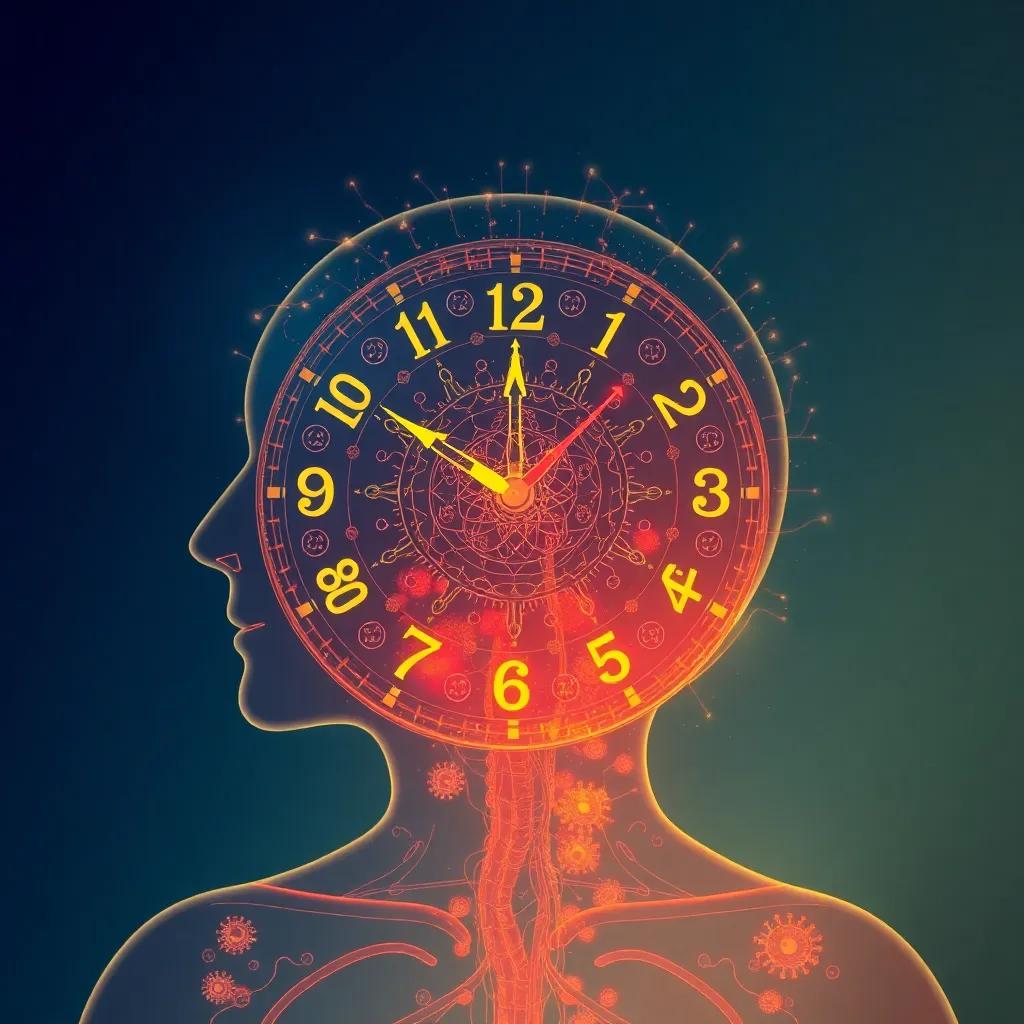Explore how circadian rhythms influence immune function, affecting infections, vaccine efficacy, and chronic inflammation, with tips for optimizing immune health through circadian alignment.
Discover how aligning your daily routines with your body’s internal clock can enhance immune function and overall health.
Introduction to Chronoimmunology
Chronoimmunology is an emerging field that studies the interplay between the circadian clock and the immune system. The circadian clock, an internal time-keeping system, regulates various physiological processes, including sleep-wake cycles, hormone release, and metabolism. Recent research has shown that the immune system is also under circadian control, influencing how our bodies respond to infections, vaccines, and chronic diseases.
The Circadian Clock and Immune Function
The circadian clock is governed by a set of genes known as clock genes, which are expressed in a rhythmic pattern throughout the day. These genes regulate the production of cytokines, chemokines, and other immune molecules. Studies have shown that the activity of immune cells, such as macrophages and T cells, varies depending on the time of day. For example, a study published in Nature Immunology
found that the immune response to bacterial infections is more robust during the active phase of the day (daytime for humans) compared to the rest phase (nighttime).
Impact on Vaccine Efficacy
Timing is crucial when it comes to vaccine efficacy. Research has shown that the time of day when a vaccine is administered can influence the strength and duration of the immune response. A study conducted by the University of Birmingham found that individuals who received the influenza vaccine in the morning had a higher antibody response compared to those who received it in the afternoon. This suggests that aligning vaccination schedules with the body’s circadian rhythms could enhance vaccine effectiveness.
Chronotherapy in Autoimmune Diseases and Cancer
Chronotherapy, the practice of timing medical treatments to coincide with the body’s circadian rhythms, holds promise for treating autoimmune diseases and cancer. For instance, a study published in Science Translational Medicine
demonstrated that administering chemotherapy at specific times of the day could reduce side effects and improve treatment outcomes in cancer patients. Similarly, researchers are exploring the potential of chronotherapy in managing autoimmune diseases like rheumatoid arthritis, where symptoms often follow a circadian pattern.
Practical Tips for Optimizing Immune Health
To support your immune system, consider aligning your daily routines with your circadian rhythms. Here are some practical tips:
- Sleep: Aim for 7-9 hours of quality sleep each night. Maintain a consistent sleep schedule, even on weekends.
- Meal Timing: Eat your meals at regular times each day. Avoid heavy meals close to bedtime.
- Exercise: Engage in moderate exercise during the day, preferably in the morning or early afternoon.
- Light Exposure: Get plenty of natural light during the day and minimize exposure to artificial light at night.
Recent Research and Future Directions
Recent studies have highlighted the potential of chronoimmunology in improving health outcomes. For example, a 2022 study published in Cell
revealed that disrupting circadian rhythms could lead to chronic inflammation and increase the risk of metabolic disorders. Future research aims to explore the molecular mechanisms underlying circadian-immune interactions and develop targeted therapies for various diseases.
Conclusion
Chronoimmunology offers a new perspective on how timing influences immune function and overall health. By understanding and aligning with our circadian rhythms, we can optimize our immune responses, enhance vaccine efficacy, and potentially improve the management of chronic diseases. As research in this field continues to grow, the integration of chronotherapy into clinical practice could revolutionize the way we approach health and disease.




